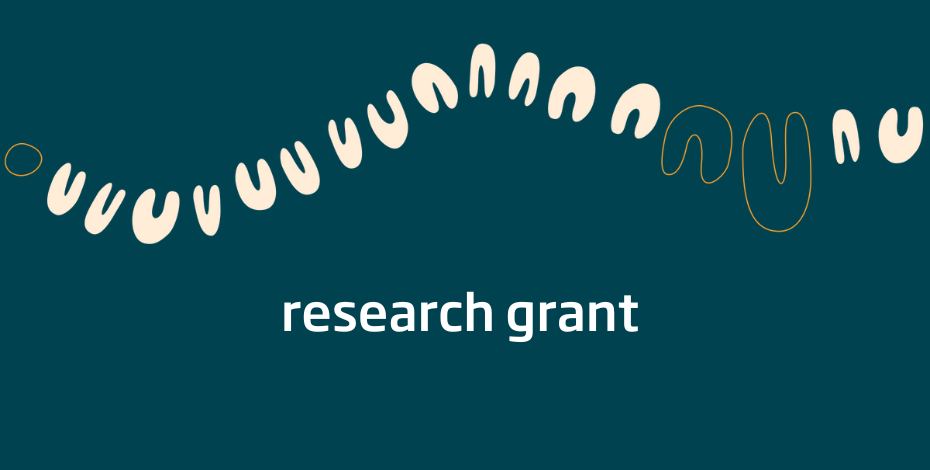
2024 PRF Aboriginal and Torres Strait Islander Research Grant

Applications for the 2024 PRF Aboriginal and Torres Strait Islander Research Grant are now open.
The Physiotherapy Research Foundation (PRF) is delighted to launch the PRF Aboriginal and Torres Strait Islander Research Grant.
The purpose of this Grant is to assist Aboriginal and / or Torres Strait Islander early-career physiotherapy researchers to undertake research that will contribute to the health and wellbeing of Aboriginal and Torres Strait Islander peoples. The overarching principle of this grant is that research is led by and for Aboriginal and Torres Strait Islander peoples.
Applicants are required to complete an expression of interest (EOI) form, followed by a full application for those who are shortlisted. There is one $12,000 grant on offer in this round.
Applications are considered predominantly on the basis of scientific merit, significance and positive impact on Aboriginal and Torres Strait Islander peoples health and wellbeing, as well as team track record.
2024 PRF grant writing tips
Tips for grant success from the PRF Grants Review Committee
Part of the purpose of the PRF grant application process is to enhance physiotherapists’ grant writing skills so they can be more competitive for this and other funding opportunities. To this end, the Grants Review Committee has provided some suggestions based on their experience assessing PRF and other successful grant applications.
Ensure you directly address the evaluation criteria.
- Read the evaluation criteria carefully as applications that do not address these will not score highly.
- Use key words from the criteria and directly outline how your project addresses them.
Make sure the methodology you are using, including your statistical analysis, is appropriate to answer each of the research questions proposed.
- If your proposed study is a pilot/feasibility trial, ensure you utilise appropriate outcomes.
Ensure all relevant research components are adequately discussed in the research proposal.
- Allocate a proportionate amount of the application to all aspects (quantitative and qualitative as relevant) of the project.
- If your proposed study is mixed or multi-methods, ensure all aspects are adequately discussed.
- Describe the quantitative methodology including the recruitment strategy, eligibility criteria, sample size, outcome measures and analysis in detail, as relevant.
- Describe the qualitative methodology including the sampling approach, eligibility criteria, sampling framework, sample size, and analysis in detail, as relevant. Ensure trustworthiness and rigour discussions are appropriate for qualitative research (e.g., not ‘reliability’ or ‘bias’ but ‘richness/depth’, ‘transferability’, ‘reflexivity’ or similar).
- Use references to support your chosen methodology.
- Discuss how you or your team have sufficient experience in your chosen study design and methodologies.
Ensure adequate details are included for the knowledge translation strategy.
- This section requires further details than simply saying you will publish your findings in a peer-reviewed journal and present at a particular conference (as these are considered passive dissemination strategies).
- The strategy does not have to be completed within the project timeframe: it can include future plans of how you see your research findings being translated by, and generating impact for, relevant stakeholders, including healthcare providers, managers, policy-makers, informal caregivers, patients, and the public in the improvement of health.
- Consider including a variety of elements of knowledge translation such as knowledge synthesis, knowledge dissemination, knowledge exchange and knowledge application.
- The strategy should be appropriate for the project. For example, for basic science research, knowledge translation may also comprise application of the findings to future research (and an explanation of how this will be achieved).
- Describe how you will access your target populations (e.g., team members have existing connections). Cont…/ 2024 PRF Grant Writing Tips
Make sure you have a research team with the appropriate skills, expertise and time commitment to support your project.
- Where appropriate, please consider including consumers/people with lived experience of the condition on the team.
Consider your audience
- Your application might be reviewed by people who do not have specific expertise in this area. Have someone not associated with the project carefully read the application to identify any areas that are not clear or inconsistent. Offer to do this for other people too! Reading other grants is a great way to improve your skills.
Address feedback from the EOI stage in the full application (only applicable if shortlisted to this stage)
- Make sure you carefully consider any issues identified by reviewers.
- While you do not necessarily need to provide a formal response, make sure it is clear in your full applications how any concerns will be addressed.
The applicant must:
- be the Chief Investigator of the project
- hold current unconditional registration as a physiotherapist with AHPRA
- be an Australian Aboriginal and / or Torres Strait Islander person currently reside in Australia
- be a financial member of the Australian Physiotherapy Association (APA) and maintain APA membership at the time of application and for the duration of the grant
- be an early career researcher.
For the purposes of this grant, an Aboriginal and / or Torres Strait Islander person is someone who:
- is of Australian and / or Torres Strait Islander descent
- identifies as an Aboriginal and / or Torres Strait Islander person; and
- is accepted as such by the community in which he or she lives or has lived.
The applicant must not have received:
- a PRF Seeding, Project or Tagged Grant previously as a Chief Investigator or
- any research grant of more than $20,000 as a named lead investigator (e.g., CIA) including at the time of awarding this grant.
The completed EOI form and any relevant documents are to be sent via email to: Jenine Fleming
All submissions must be received by Sunday 18 August 2024, 11:30 pm AEDT. Receipt of your application will be acknowledged by return e-mail.
